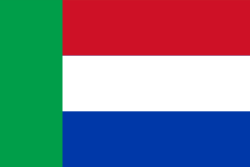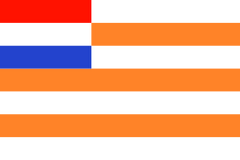U.S. says Iran, Syria destabilizing region
By CLAUDE SALHANI (Editor, Middle East Times)
Published: April 30, 2008
A U.S. air force F-22 Raptor aircraft refuels 26,000 feet above Alaska. "Terrorists consider information operations a principal part of their effort," the latest country report on terrorism says, adding: "Use of the Internet for propaganda, recruiting, fundraising and, increasingly, training, has made the Internet a 'virtual safe haven.'" (Photo by DoD)
TOOLBAR
Print Story
Add Comments
The year 2007 was marked by the affiliation of regional insurgent groups with al-Qaida, who along with its associated networks remained the greatest terrorist threat to the United States and its partners in 2007, according to the 2007 Country Reports on Terrorism released by the U.S. State department Wednesday.
The report states that al-Qaida has reconstituted some of its pre-9/11 operational capabilities through the exploitation of Pakistan's Federally Administered Tribal Areas (FATA), replacement of captured or killed operational lieutenants, and the restoration of some central control by its top leadership, in particular Ayman al-Zawahiri.
Although Osama bin Laden remained the group's ideological figurehead, Zawahiri has emerged as al-Qaida's strategic and operational planner.
The report finds that al-Qaida and its affiliates seek to exploit local grievances for their own local and global purposes. "They pursue their own goals, often at large personal cost to the local population." They have become adaptive, reacting quickly in response to countermeasures. Al-Qaida utilizes terrorism, as well as subversion, propaganda, and open warfare; it seeks weapons of mass destruction in order to inflict the maximum possible damage on anyone who stands in its way, including other Muslims and/or elders, women, and children.
Combined efforts by the security forces of both Afghanistan and Pakistan have failed to quell the rise of al-Qaida. Rather, the group has now greater mobility and ability to conduct training and operational planning, "particularly that targeting Western Europe and the United States."
Proving their ability to adapt to rapidly changing situations al-Qaida has managed to replace "numerous senior operatives who were captured or killed.
Last year was marked by the affiliation of regional insurgent groups with al-Qaida, notably the growing threat in North Africa posed by the Algerian Salafist Group for Preaching and Combat (GSPC). Following the September 2006 merger with al-Qaida, the GSPC renamed itself al-Qaida in the Islamic Maghreb (AQIM). AQIM is still primarily focused on the Algerian government.
In 2007 AQIM carried out eight suicide attacks that resulted in large numbers of government and civilian casualties. The group recruits suicide bombers from easily exploitable groups, such as the teenagers used in the July 11 and Sept. 8 attacks, or the elderly and terminally ill, as in the Dec. 11 UN attack.
But al-Qaida has also suffered setbacks, as in Iraq. The group's alliance of convenience it enjoyed since the start of the U.S. invasion with Sunni groups came to an abrupt and violence divorce as many of these groups turned to support the U.S. war effort, forcing some fighters from Baghdad and Anbar province into the northern Iraqi provinces of Ninawa, Diyala, and Salah ad Din. Regardless of the progress achieved, al-Qaida in Iraq (AQI) remains a threat.
And in Africa, the invasion of Somalia by Ethiopia in late 2006 and the subsequent deployment of African Union forces there have kept al-Qaida East Africa leadership, and elements of the Council of Islamic Courts that harbored them, on the run.
This did not prevent al-Qaida from launching a new assault using information as its primary weapon. According to the State Department al-Qaida has increased all throughout 2007 its propaganda efforts seeking to inspire support in Muslim populations, undermine Western confidence, and enhance the perception of a powerful worldwide movement.
"Terrorists consider information operations a principal part of their effort. Use of the Internet for propaganda, recruiting, fundraising and, increasingly, training, has made the Internet a 'virtual safe haven,'" states the report. "The international community has yet to muster a coordinated and effectively resourced program to counter extremist propaganda," warns the U.S. government analysis of the state of terrorism around the world.
THE TALIBAN
Despite efforts by the Afghan government to strengthen its national institutions, the Taliban continued to threaten the security of Afghanistan. Taliban insurgents murdered local leaders and attacked Pakistani government outposts in the FATA.
STATE SPONSORS OF TERRORISM
Iran remains "the most significant state sponsor of terrorism," according to the U.S. State Department.
"A critically important element of Iranian national security strategy is its ability to conduct terrorist operations abroad. Iranian leaders believe this capability helps safeguard the regime by deterring United States or Israeli attacks, distracting and weakening the United States, enhancing Iran's regional influence through intimidation, and helping to drive the United States from the Middle East."
Hezbollah, designated a "Foreign Terrorist Organization," the report says, "is key to Iran's terrorism strategy."
The report points to the Lebanese Shiite organization Hezbollah as receiving support from Iran and Syria, and accuses them of continuing to undermine the elected government of Lebanon. "They remain a serious security threat," according to the U.S. State Department.
The Islamic republic is judged in the U.S. State department report of continuing "to threaten its neighbors and destabilize Iraq by providing weapons, training, and funding to select Iraqi Shia militants."
It also accuses what it calls Iran's "proxy groups" of perpetrating violence and killing U.S. troops.
Foreign terrorists continued to transit via Syria en route to and from Iraq; a report to Congress stated that nearly 90 percent of all foreign fighters entering Iraq are transiting from Syria. In addition, the government of Iran has recently begun an effort to expand commercial and diplomatic ties throughout the Western Hemisphere. Iran has, in the past, used diplomatic missions to support the activities of Hezbollah operatives.
Countries that continue to support terrorism undermines efforts to eliminate it, finds the 2007 Country Report on Terrorism.
Thursday, May 1, 2008
Subscribe to:
Post Comments (Atom)







No comments:
Post a Comment